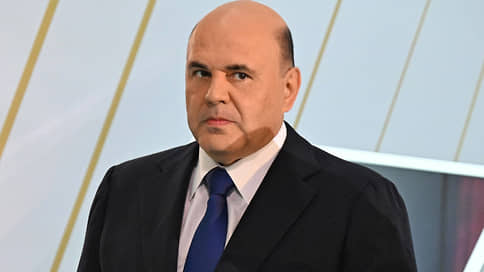Companies will not feel the difference – Newspaper Kommersant No. 181 (7382) of 09/30/2022
[ad_1]

The government allocates 25.6 billion rubles for the restructuring of loans taken by large businesses at a floating interest rate. With these funds, banks are compensated for up to 70% of the income they did not receive, they will have to “forgive” the remaining 30% to companies. We are talking about the difference between the market lending rate, which grew strongly in the first quarter of the year following the key one, and lower interest rates under the program of a three-month transition period. The compensation will not affect the loans of mining companies, as well as those that owe the budget more than 500 thousand rubles.
The White House has decided on the conditions for writing off part of the interest as part of the restructuring of loans to large businesses with a floating rate. As Prime Minister Mikhail Mishustin said yesterday at a cabinet meeting, 25.6 billion rubles will be allocated to compensate for lost income of banks. To clarify, we are talking about a restructuring program that appeared after the February increase in the key rate to 20%. The essence of the mechanism was to introduce a three-month period during which borrowers could pay at reduced rates, gradually returning to market rates. In the first month, the rate on such loans was 12.5%, in the second – 13.5%, in the third – 16.5%. This measure was explained by the need to smooth out the consequences of a sharp rise in the cost of loans for large borrowers. As the Ministry of Economy reported at the time, the burden on companies almost doubled due to the increase in the key rate, while about 40% of corporate ruble loans were provided at floating interest rates (the volume of such a loan portfolio was estimated at 11 trillion rubles).
As the head of the Ministry of Economy Maxim Reshetnikov said yesterday, as a result, business saved 36 billion rubles on interest payments. According to the rules of the program, companies must return the difference between the interest that banks did not receive during the transition period in 2023, however, it was also possible to write off these amounts if the companies meet certain requirements. Such criteria were approved yesterday – in particular, the borrower has no debts on taxes, insurance premiums and other obligatory payments in the amount of more than 500 thousand rubles, as well as delays of more than 30 days on the most restructured loan. At the same time, the percentage difference will not be written off to mining companies and those who provide services in this area (as well as in the production of coke and petroleum products).
Banks will be compensated up to 70% of the percentage difference, and the rest, as Mikhail Mishustin explained yesterday, “will be considered fulfilled,” that is, it will be transferred to the banks themselves. Payments will begin in October-December. According to Maxim Reshetnikov, banks will submit documents through VEB.RF. VEB explained to Kommersant that “the interest rate risk on projects was fully realized in the first half of this year – VEB’s project financing factory protects borrowers from such risk throughout the entire project lending period, which often exceeds 10-12 years, in this case the government has implemented such protection for a wider range of borrowers as a measure of operational anti-crisis support.”
Vladimir Gamza, head of the Russian Chamber of Commerce and Industry Council for Industrial, Financial and Investment Policy, calls the criteria that borrowers must meet in order to write off the interest difference “moderately stringent.” According to him, “they cut off companies that have problems that are not related to these loans. “On the one hand, this is probably fair, but on the other hand, it must be borne in mind that the problems may not be related to the fact that they did not work well, but are due to economic difficulties against the backdrop of covid and the special operation,” the expert says. In general, the possibility of such a write-off, Vladimir Gamza believes, can have a positive impact on companies: “Given the size of loans taken by large businesses, we are talking about quite significant amounts, especially now.”
[ad_2]
Source link






